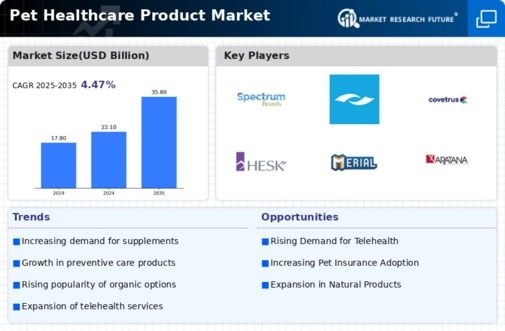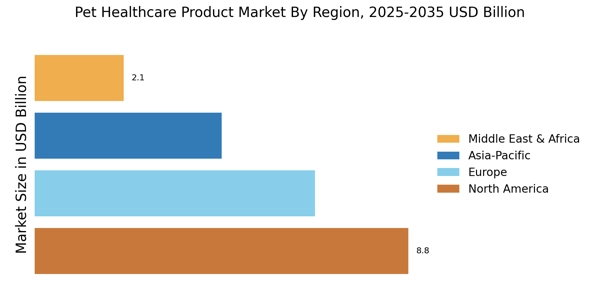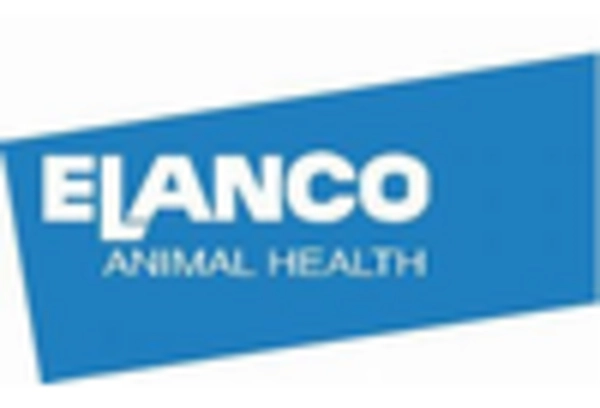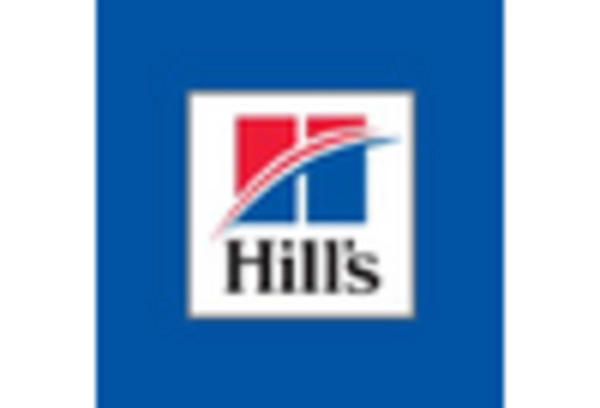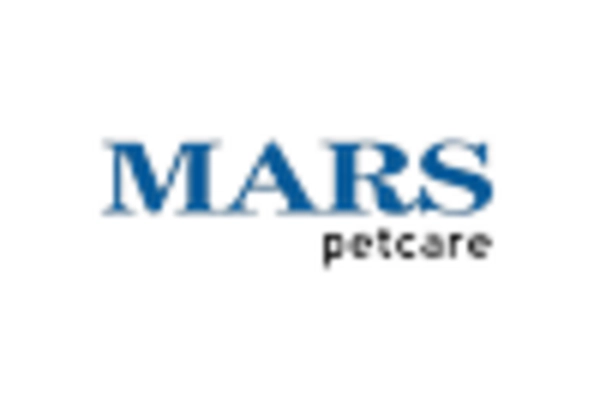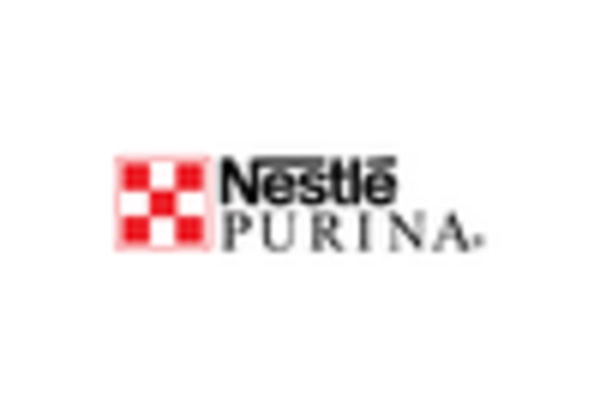E-commerce Expansion
The expansion of e-commerce platforms is reshaping the Pet Healthcare Product Market. Online shopping offers convenience and accessibility, allowing pet owners to easily purchase healthcare products from the comfort of their homes. Recent data shows that online sales of pet products have surged, with e-commerce accounting for a significant portion of total pet product sales. This trend is expected to continue, as more consumers prefer the ease of online shopping. E-commerce platforms also provide a wider range of products, enabling pet owners to find specialized healthcare items that may not be available in local stores. This shift towards online purchasing is likely to drive market growth.
Increase in Pet Ownership
The rise in pet ownership is a notable driver for the Pet Healthcare Product Market. As more households adopt pets, the demand for healthcare products escalates. Recent statistics indicate that approximately 67% of U.S. households own a pet, which translates to over 85 million families. This trend is mirrored in various regions, suggesting a robust market potential. Pet owners are increasingly willing to invest in healthcare products, including preventive medications and wellness supplements, to ensure their pets lead healthy lives. This growing commitment to pet health is likely to propel the market forward, as owners seek to provide the best care possible for their furry companions.
Focus on Preventive Healthcare
The focus on preventive healthcare is emerging as a pivotal driver for the Pet Healthcare Product Market. Pet owners are increasingly recognizing the value of preventive measures in maintaining their pets' health. This trend is reflected in the rising sales of preventive healthcare products, such as vaccines, flea and tick treatments, and dietary supplements. Market analysis suggests that the preventive healthcare segment is expected to grow significantly, as owners prioritize long-term health over reactive treatments. This proactive approach not only enhances the quality of life for pets but also contributes to the overall growth of the pet healthcare market.
Growing Awareness of Pet Health
Growing awareness of pet health among owners is a critical driver for the Pet Healthcare Product Market. As pet owners become more informed about the importance of regular health check-ups and preventive care, the demand for healthcare products rises. Educational campaigns and resources have contributed to this awareness, leading to increased spending on pet health. Reports indicate that pet owners are now more likely to purchase supplements, dental care products, and preventive medications. This shift in consumer behavior reflects a broader trend towards proactive pet care, which is likely to sustain growth in the market for healthcare products.
Advancements in Veterinary Medicine
Advancements in veterinary medicine significantly influence the Pet Healthcare Product Market. Innovations in diagnostics, treatments, and preventive care have led to an increased focus on pet health. For instance, the development of advanced vaccines and therapeutics has expanded the range of available healthcare products. The market for veterinary pharmaceuticals is projected to reach substantial figures, indicating a growing investment in pet health. As veterinary practices adopt new technologies, pet owners are more inclined to purchase healthcare products that align with these advancements. This trend suggests a symbiotic relationship between veterinary progress and the demand for innovative pet healthcare solutions.


